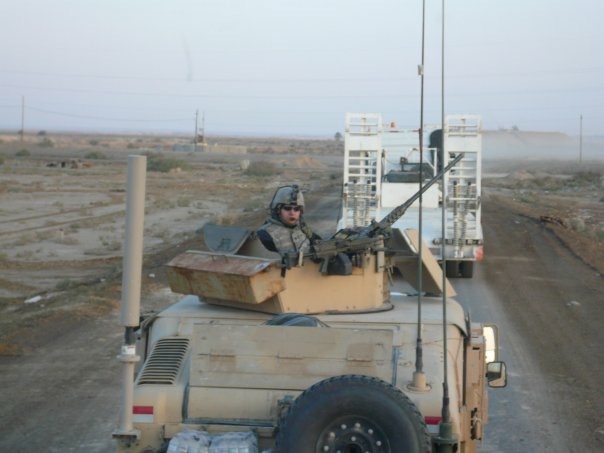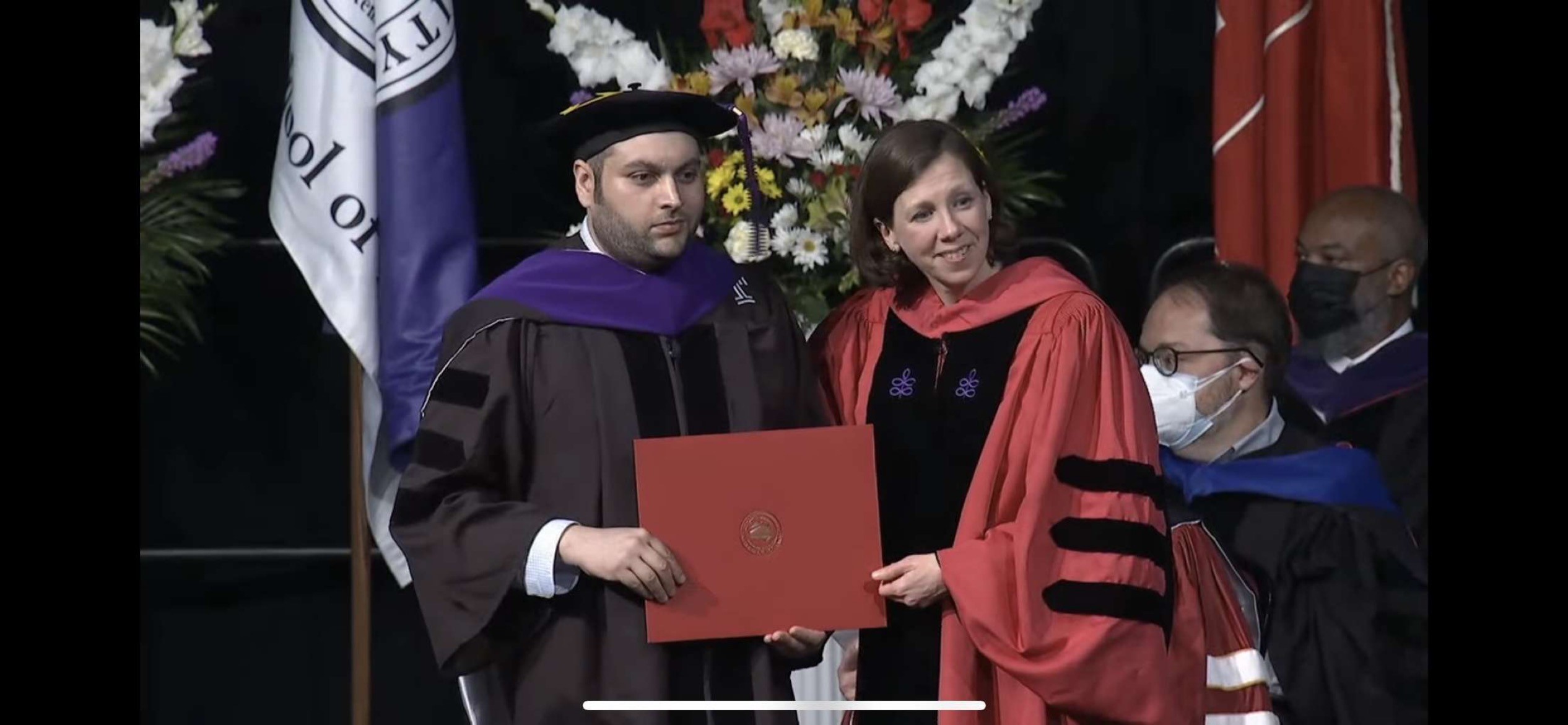Posted on June 30, 2022 by Amanda Cerreto
July 1, 2022 - When a member of the US Army Reserves is deployed to a combat zone, the situation back home is not always front of mind. Even less common is for a Soldier to apply to a rigorous academic program in the states while on a remote military base in the middle east. But for Dilip Gokhale '13, next steps were always on his mind - even from his time as an undergraduate student.

Gokhale in Kuwait
While in the Army Reserves, Gokhale enrolled as an undergraduate in the UTSA political science program. It was during this time that his unit was deployed to the middle east.
When he completed his undergraduate degree, Gokhale decided to stay in San Antonio and work for the city's City Development and Operations Department. While working there, still thinking about next steps, he began the process of applying to law schools.
The Army had other plans for Gokhale, though, and he was deployed for a second time. "When we were starting to come back, I was in Kuwait and I was I was thinking, what am I going to do? I quit my job. I didn’t pay any seat deposits for law schools that I applied to. What am I going to do when I get back?"
He reached out to his former political science professor, Richard Gambitta , for advice. "He suggested that if I want to further my skill set, why don’t I consider applying to the MPA program?"
Applying to the program while stationed in a remote area of Kuwait - and while still conducting his day to day duties for the Army - wasn't easy, but Gokhale got it done. And it was on the flight back to the United States that he received news of his admission into the UTSA MPA program.
Gokhale began the program a mere week after returning from his overseas deployment. “Coming back and immediately going to school was really helpful,” he said. “It was a time to slow down and learn. Other things outside of the program may have been chaotic, but the MPA program was the one thing in life where I could go to the library, read, prepare, and talk about what we were studying.”
Chair and Professor Francine Romero recalled Gokhale's unusual entrance into the program. “When he first started in our program, he wore his military uniform the first week of class, a business suit the second week, and by the third week arrived in a baseball cap and shorts, much like the other students,” she said. “That symbolized to me how our department, and UTSA in general, provides a welcoming space for returning veterans to transition to professional careers, strengthened by the values of their military training and experience.”

Gokhale on deployment
Gokhale echoed the feeling of belonging from the first class. “Immediately I knew the MPA program was the best thing I could have done,” he said. “From the first Public Policy and Analysis course to the land use class, it was just a good fit.”
After graduating from the program, Gokhale took a job as an investigator with the US Equal Employment Opportunity Commission (EEOC). Still, law school never left his mind. While he was thoroughly enjoying his job with the EEOC, he knew he still wanted to pursue law - and he did. In the spring of 2022, Gokhale graduated from Temple University Beasley School of Law.
“At the EEOC we investigate discrimination claims, and I worked side by side with trial attorneys,” Gokhale said. “Because of the work that we do, I wanted to get a better understanding of law.”
Gokhale credits the MPA program with giving him a solid foundation for a challenging law school.
“I wasn’t behind the eight-ball going into law school because of the MPA program,” he said. “What other school can you get the kind of faculty you'll find there? We had a former mayor of San Antonio and Mexico's Internal Revenue Office Director teaching us real skills that are applicable.”
Apart from the faculty, Gokhale is adamant that every single class he took in the MPA program either applied to his job with the EEOC or to his law school studies.
“In the research methods course, we learned how to analyze disparate impact claims, and being able to take a whole bunch of different variables and to see which one’s playing the greatest impact on the other. - that was so invaluable,” Gokhale said. “My applied research course still applies to my daily work today - we conducted statistical analyses there, and in my job today I'm able to explain to directors and colleagues what reports we're reading because the MPA professors taught me the math behind the analysis.”
Now that Gokhale is finished with law school, he can see more clearly than ever how the MPA program set him up for success.
“The program absolutely made me a better law student,” he said. “I got an A in civil procedure, because I took Dr. Romero's administrative law class and she broke down Supreme Court cases in a way that was understandable, where in law school they hand you a book and they say figure it out.”
“Dilip was a wonderful student who demonstrated unusual insight into policy and the law, and I am not surprised at all the success he has achieved since earning his MPA degree,” Romero added.
Gokhale is based in Ohio now and continues his work at the EEOC, but is one of the program's biggest champions. “I am super grateful for the program because it set me up well academically and professionally,” he said. “If I didn't get an MPA from UTSA, I don't think I would have gotten the opportunities and jobs that I have now.”

Gokhale’s law school graduation

